When you buy a pet online, through a classified ad, or from a pet store, you may be unknowingly supporting a puppy mill. These mass breeding operations are a cruel and abusive way to treat man’s best friend. Breeding dogs at puppy mills are treated like production machines at the cost of their health and happiness. Hopefully, by educating ourselves and others on the issues involved in these large-scale breeding operations, we can stop the abuse and make sure these animals are treated with love and respect.
What Are Puppy Mills?
Also known as a puppy farm, a puppy mill is a commercial dog breeding facility. Because the puppy mill is profit-motivated, the health and well-being of the dogs is often disregarded to keep costs low and profits high.
Conditions in puppy mills are inhumane at best. Dogs are kept continuously in small cages, usually only large enough for the dog to turn around. They are rarely allowed out of the pen or given time to be outdoors. These conditions are unsanitary at best, and the animals get very little to no veterinary care.
Puppies from puppy mills have minimal human contact and may have behavioral or psychological problems from their inhumane treatment. Additionally, they usually have health conditions because of their close confinement, unsanitary conditions, and lack of proper care.
Are Puppy Mills Illegal?
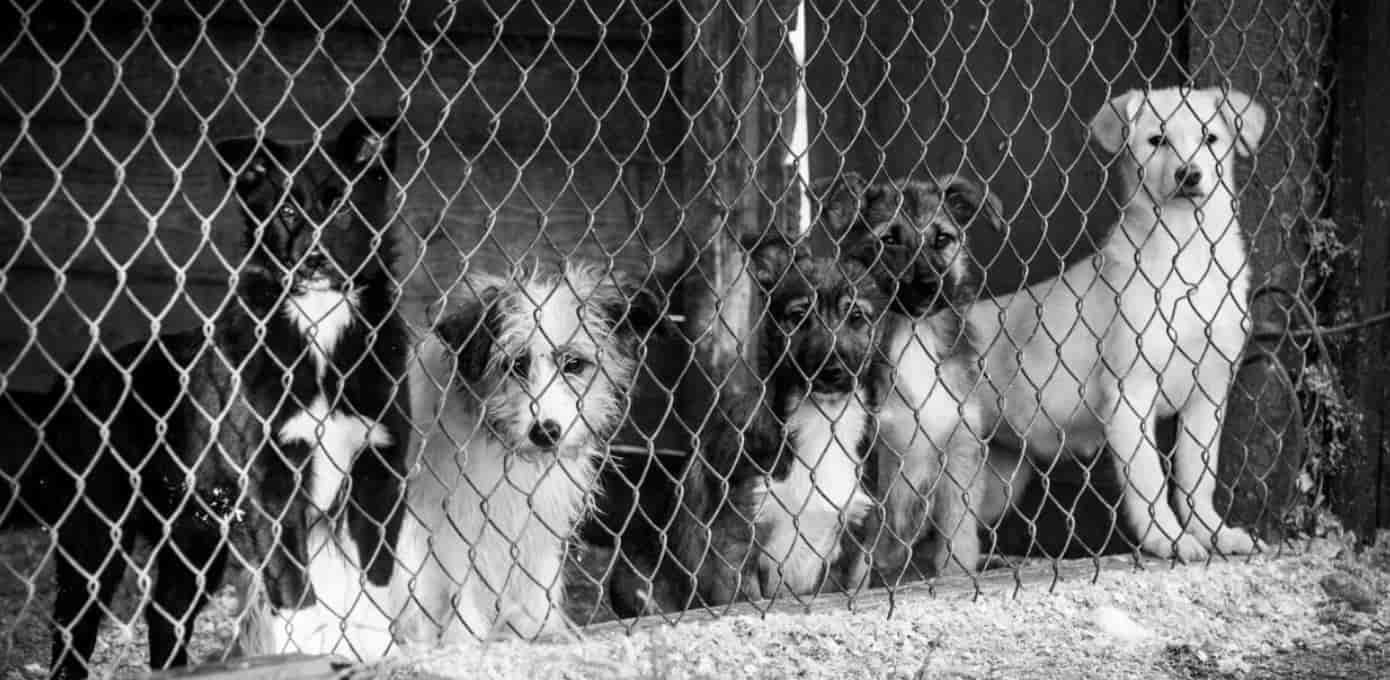
Sadly, puppy mills are legal. These inhumane businesses exist because there is a large demand for puppies not met by shelters. Also, many pet owners prefer to purchase a puppy over adopting an older dog from a shelter. Older dogs are often better behaved and more loving.
Puppy Mills Laws and Pending Legislation
Currently, puppy mills are governed by the Animal Welfare Act (AWA) and overseen by the United States Department of Agriculture (USDA). The standards set forth for animal care are minimal, and the USDA does not effectively enforce the law. A new law, the Preventing Animal Cruelty and Torture Act (PACT) was passed in October 2019, but many believe that the law does not go far enough to protect animals from abuse. It does not directly address the issues of puppy mills, but some of its provisions may apply.
Under the AWA, puppy mills are allowed to:
- Keep an unlimited number of dogs on the premises.
- Restrain dogs in stacked cages with wire or mesh flooring.
- Force dogs to relieve themselves in their cages.
- Confine dogs in cages only 6 inches larger than their bodies, not including the tail.
- Cage dogs 24 hours a day, for their entire lifetime.
- Give no exercise.
- Provide no human interaction.
- Breed dogs at every heat cycle, with no rest after birth.
The AWA allows mill owners to determine what is adequate care for their animals. Unfortunately, when profit is the motive, their standards are often lacking. Ideally, regular inspections would eliminate problem puppy mills, but the USDA is understaffed, and on-site reviews may only happen every two to three years. Even with inspections, violations are not properly documented. In 2010, a USDA report stated that its enforcement is ineffective against problem puppy mills. Unfortunately, the problem has grown since that time with relaxed enforcement and fewer inspectors.
Puppy Protection Act, HR 2442
First introduced in 2017, the Puppy Protection Act would be a welcome first step in fixing these problems, but sadly it has languished in Congress. The bill was updated in 2018 and 2019 but has yet to pass Congress or the Senate. The Puppy Mill Act, if enacted, would require mill owners to provide, among other things:
- More housing space with a solid floor
- Room to stand up in the enclosure
- Temperature control
- Sufficient nutritious food, twice a day
- Continuous access to clean water
- Adequate exercise
- Meaningful socialization with humans and other dogs for at least 30 minutes daily
- Adequate health care
While these are fundamental protections and do not go far enough to provide a happy life for a breeder dog, they are a necessary step in the right direction.
Puppy Mills and Animal Shelters
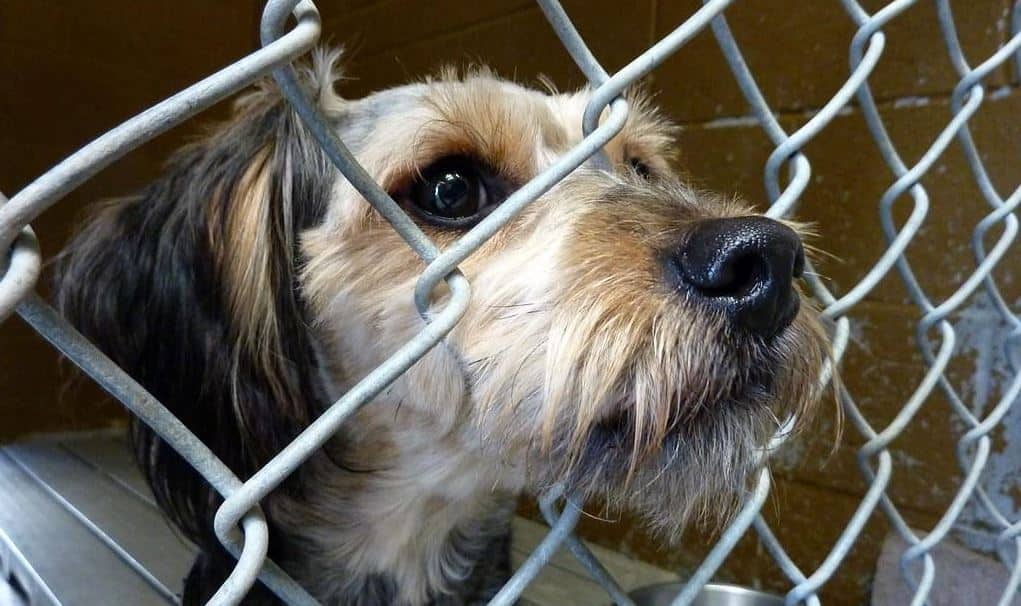
One of the real tragedies of puppy mills is the fate of millions of animals that are not sold. These dogs are often left with animal shelters that are already overflowing or abandoned on the streets. Millions of pets are euthanized every year because of overcrowding. Nearly a quarter of the animals in shelters are purebred, many from puppy mills. Consider adopting a shelter dog or cat.
Unfortunately, many more unsold dogs are abandoned on the street and are unable to support themselves. Most abandoned dogs live short, tragic lives of homelessness and starvation and this is the fate of many unsold puppies bred in puppy mills
In many states and local areas, puppy mills rescue organizations have formed to remove unwanted dogs from puppy mills and provide them with health care and training. Hopefully, they can successfully move into fostering and eventually be adopted into a safe home life. Puppy mills rescue organizations are doing a valuable service that would not be required if puppy mills were better regulated or outlawed completely.
How to Avoid Puppy Mill Pets
Most puppy mill owners will try to hide their operations and talk convincingly about how well-loved their animals are when the reality is far different. They know that most people would never support the way they run their business. While puppy mills can sometimes be hard to spot, follow these guidelines to make sure you do not support a puppy mill:
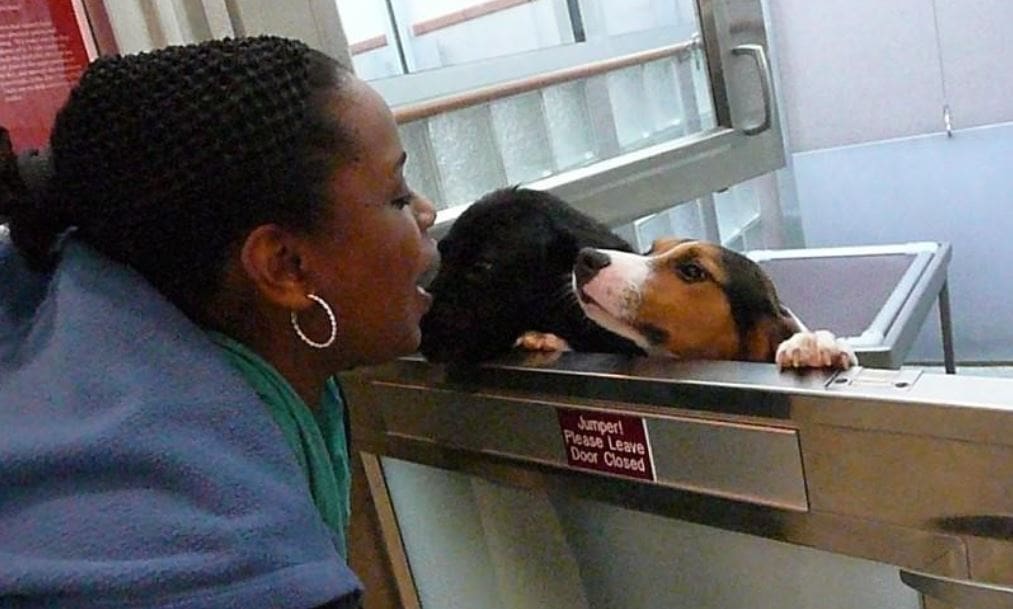
- Do not buy from a pet store, classified ad, or online sale.
- Adopt a dog from a shelter. Visit the shelter regularly and interact with the dogs until you find the right one for you.
- Avoid breeders who insist on all visits at your home or who ship the dog to you.
- If you purchase from a breeder, check their reputation and tour the entire facility first. Make sure all dogs are well-treated and well-loved.
- Visit the breeder several times before the final purchase or adoption to observe the treatment and socialization of the animals.
- Avoid breeders with multiple types of puppies for sale.
- Advocate for humane animal treatment.
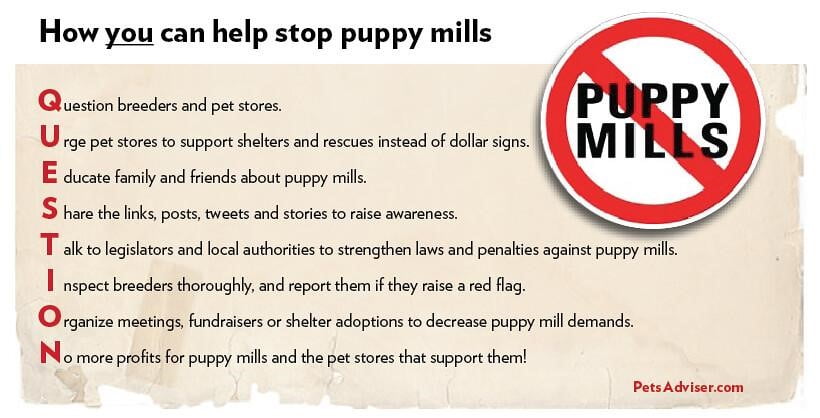
Advocating for Humane Animal Treatment

Get involved in advocating for your pets on a local, state, and national level. There is much you can do in your spare time. Contact your legislators by phone, email, or on social media to let them know that you are concerned about puppy mills and the abusive treatment of animals.
Every dog should be loved and treated as well as our own. Puppy mills ignore these standards and turn dogs into breeding machines for their profit. By taking the time to communicate your concerns with your representatives, you can make a difference. If you have more time or want to become more involved, volunteer at a local shelter or rescue organization for puppy mill victims.
Equally important, reporting puppy mills if you discover or hear about them. Reporting a puppy mill that treats animals poorly is necessary for stopping the practice. Don’t wait for someone else to report puppy mills to the USDA or local authorities. You can make a difference in the lives of many dogs by reporting inhumane treatment whenever you suspect it.
Outlawing Puppy Mills
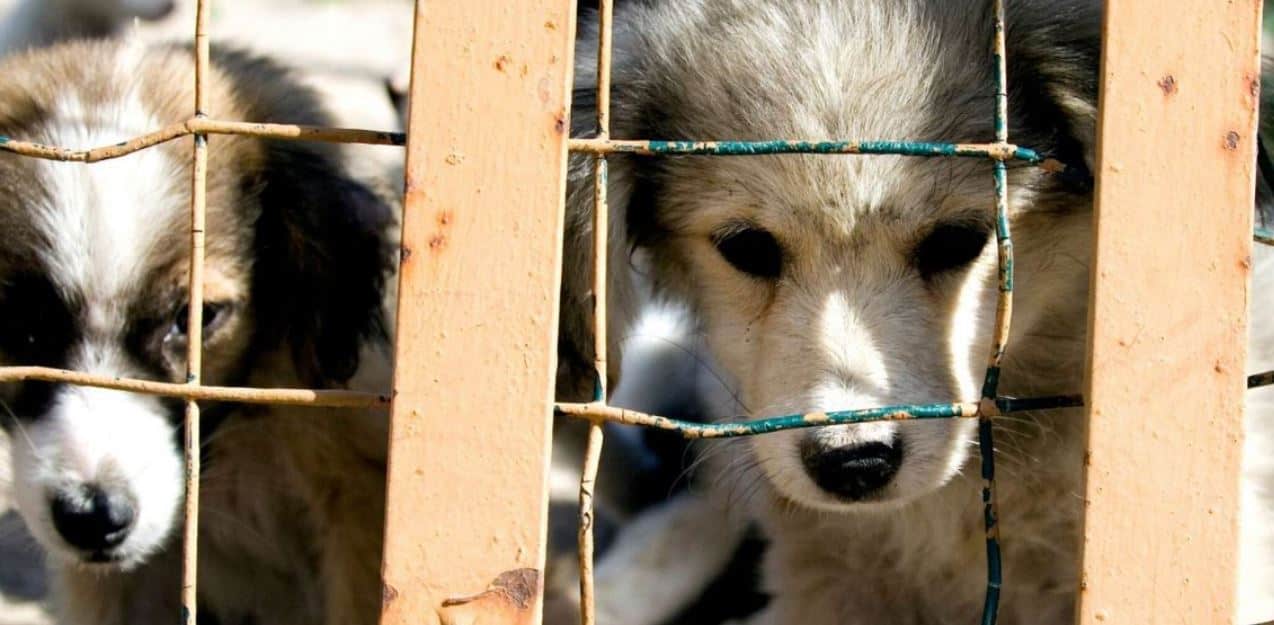
For the safety, health, and well-being of every pet, we must outlaw these barbaric practices and make sure all pets are treated with love and care. It is our responsibility as pet owners to stand up for the animals in our care and their counterparts around the world. Help educate others about the breeding practices and treatment of animals in puppy mills. If enough people are aware, we can effect change.
Learn more about rescue and shelter animals and how you can help by visiting Rescue and Shelter Animals.
Potential Health Issues of Puppy Mill Dogs

The sad reality is that puppy mill dogs tend to have similar health conditions. This is due to poor veterinary care, overcrowding, unsanitary conditions, and a lack of puppy vaccinations. Pathogens and bacteria are able to spread rampantly throughout cages stacked ontop or near each other. Unsanitary care like unnutritious food and unfresh drinking water can contribute to some of these horrendous bacterial complications as well. Some of these common puppy mill dog issues include:
- Blood disorders
- Chronic heart conditions
- Kidney disease
- Musculoskeletal disorders
- Diabetes
- Hyperthyroidism
- Deafness or blindness
If you want to rescue a dog from a puppy mill setting, it is smart to get dog insurance when they are young to cover any problems they may encounter throughout life. Dog insurance can offer protection from injury or illness. If you’re ready to take the next step, give us a call at 888-820-7739 or get a FREE, no-commitment quote today.

